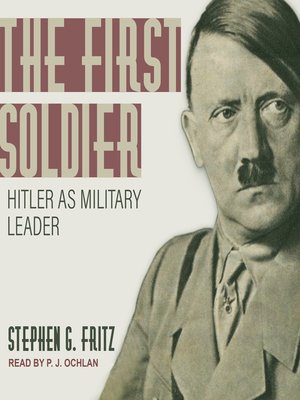
Sign up to save your library
With an OverDrive account, you can save your favorite libraries for at-a-glance information about availability. Find out more about OverDrive accounts.
Find this title in Libby, the library reading app by OverDrive.



Search for a digital library with this title
Title found at these libraries:
| Library Name | Distance |
|---|---|
| Loading... |
A leading expert reexamines history to offer a stunningly original portrait of Hitler as a competent military commander and strategist.
After Germany's humiliating World War II defeat, numerous German generals published memoirs claiming that their country's brilliant military leadership had been undermined by the Führer's erratic decision making. The author of three highly acclaimed books on the era, Stephen Fritz upends this characterization of Hitler as an ill-informed fantasist and demonstrates the ways in which his strategy was coherent and even competent.
That Hitler saw World War II as the only way to retrieve Germany's fortunes and build an expansionist Thousand-Year Reich is uncontroversial. But while his generals did sometimes object to Hitler's tactics and operational direction, they often made the same errors in judgment and were in agreement regarding larger strategic and political goals. A necessary volume for understanding the influence of World War I on Hitler's thinking, this work is also an eye-opening reappraisal of major events like the invasion of Russia and the battle for Normandy.
After Germany's humiliating World War II defeat, numerous German generals published memoirs claiming that their country's brilliant military leadership had been undermined by the Führer's erratic decision making. The author of three highly acclaimed books on the era, Stephen Fritz upends this characterization of Hitler as an ill-informed fantasist and demonstrates the ways in which his strategy was coherent and even competent.
That Hitler saw World War II as the only way to retrieve Germany's fortunes and build an expansionist Thousand-Year Reich is uncontroversial. But while his generals did sometimes object to Hitler's tactics and operational direction, they often made the same errors in judgment and were in agreement regarding larger strategic and political goals. A necessary volume for understanding the influence of World War I on Hitler's thinking, this work is also an eye-opening reappraisal of major events like the invasion of Russia and the battle for Normandy.







